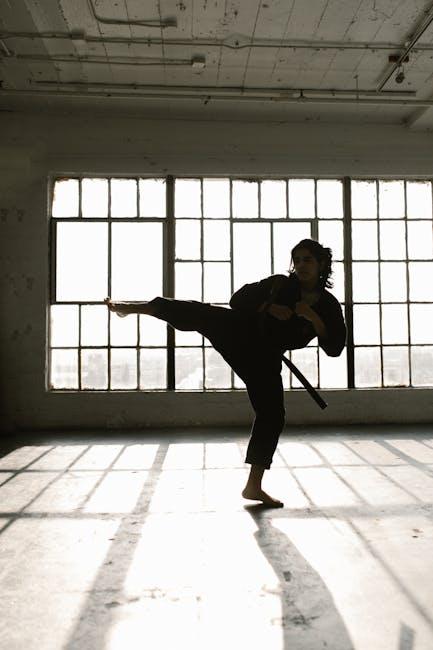Beneath the raw physicality and adrenaline-soaked spectacle of Mixed Martial Arts lies a complex tapestry of mental strategies and psychological resilience. MMA fighting is not merely a display of strength and technique; it is a profound battle of minds where focus, emotion, and cognitive control shape the outcome as much as punches and submissions. This article delves into the psychology behind MMA fighting, exploring how fighters harness mental toughness, navigate fear, and engage in rapid decision-making under extreme pressure. By understanding these inner dynamics, we gain a deeper appreciation for the sport’s intricate dance between human will and physical prowess.
Table of Contents
- Understanding the Mental Toughness Required in MMA
- The Role of Anxiety and Stress Management in the Cage
- Cognitive Strategies for Enhancing Focus and Decision Making
- Emotional Regulation Techniques to Maintain Peak Performance
- The Impact of Visualization and Mental Rehearsal on Fight Outcomes
- Building Resilience Through Mindset Training and Recovery Practices
- Q&A
- To Wrap It Up
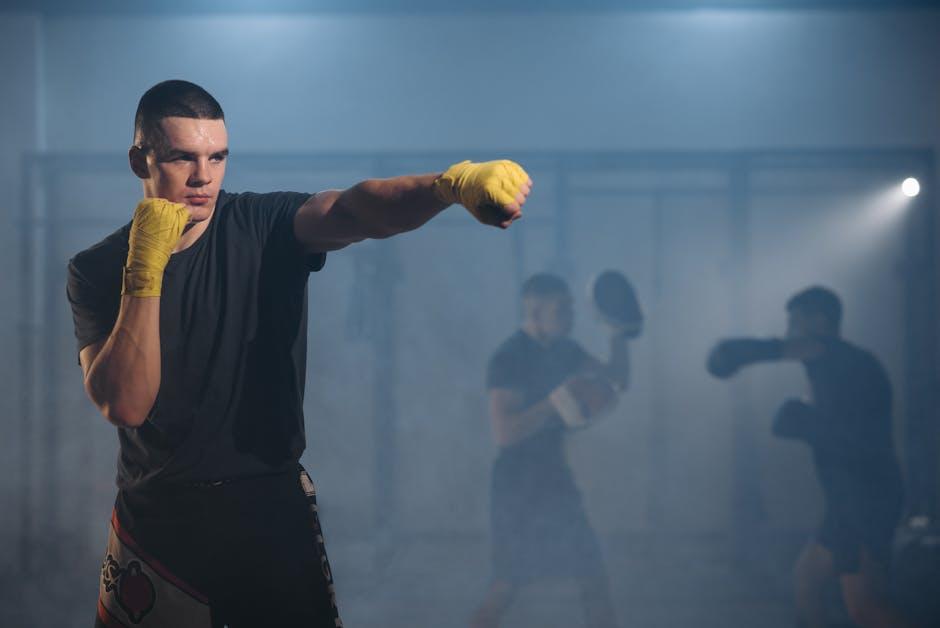
Understanding the Mental Toughness Required in MMA
MMA fighters operate in an environment where physical prowess is only half the battle; the true edge lies in their ability to maintain mental resilience under extreme pressure. The capacity to stay calm amidst chaos, manage fear, and maintain focus is what separates champions from contenders. This mental toughness is cultivated through rigorous psychological conditioning, including visualization techniques, controlled breathing exercises, and strategic self-talk that reinforces confidence and determination.
Key mental attributes that enhance an MMA fighter’s performance include:
- Emotional control: The ability to regulate emotions to avoid impulsive reactions.
- Stress tolerance: Managing anxiety and maintaining clarity during high-stakes moments.
- Focus and concentration: Sustaining attention on the fight plan and adapting quickly to opponents’ moves.
| Attribute | Benefit in MMA |
|---|---|
| Resilience | Bounce back from setbacks quickly |
| Discipline | Stick to training regimes despite fatigue |
| Adaptability | Adjust fight tactics mid-bout |
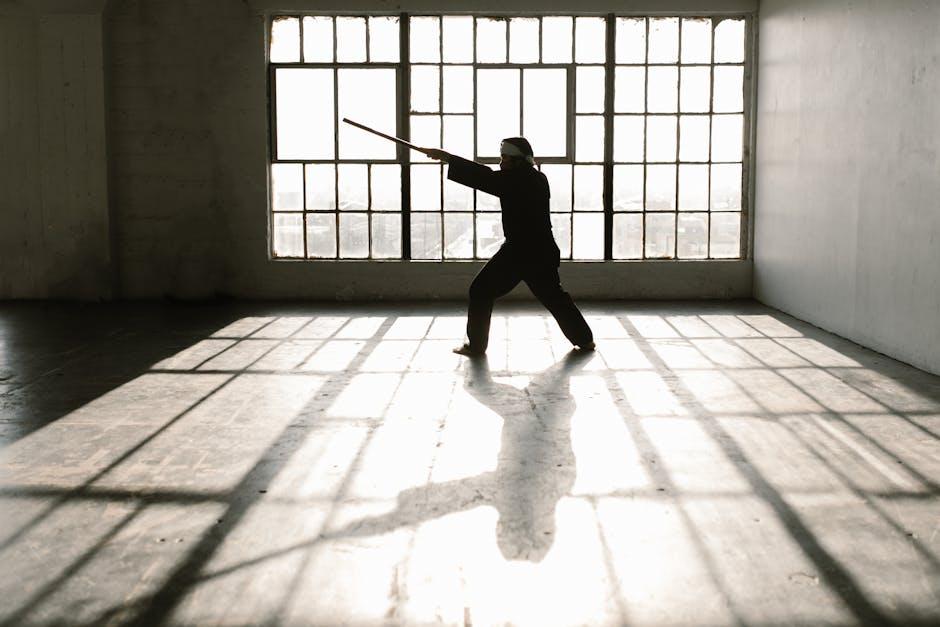
The Role of Anxiety and Stress Management in the Cage
In MMA, the mind often faces challenges far greater than the physical opponent. Anxiety and stress are ever-present forces that can cloud judgment and stall reaction time, potentially turning the tide of the fight within a matter of seconds. Fighters who master techniques like controlled breathing, visualization, and mental rehearsal are better equipped to maintain calm under pressure. These psychological tools help them channel nervous energy into focused aggression, allowing a clear strategic mind to thrive amidst chaos.
Key strategies for managing stress in the cage include:
- Pre-fight meditation: Establishing mental clarity before physical exertion
- Routine development: Creating familiar rituals that ground the fighter
- Biofeedback techniques: Monitoring internal signals to lower tension
- Support system: Leaning on coaches and training partners for emotional balance
| Stress Factor | Common Response | Effective Coping Mechanism |
|---|---|---|
| High adrenaline surge | Muscle tension, shaky hands | Focused breathing exercises |
| Fear of losing | Racing thoughts | Mental rehearsal of success |
| Audience pressure | Distraction, loss of concentration | Visualization of fight scenarios |
| Injury pain | Wavering confidence | Mindfulness and acceptance |
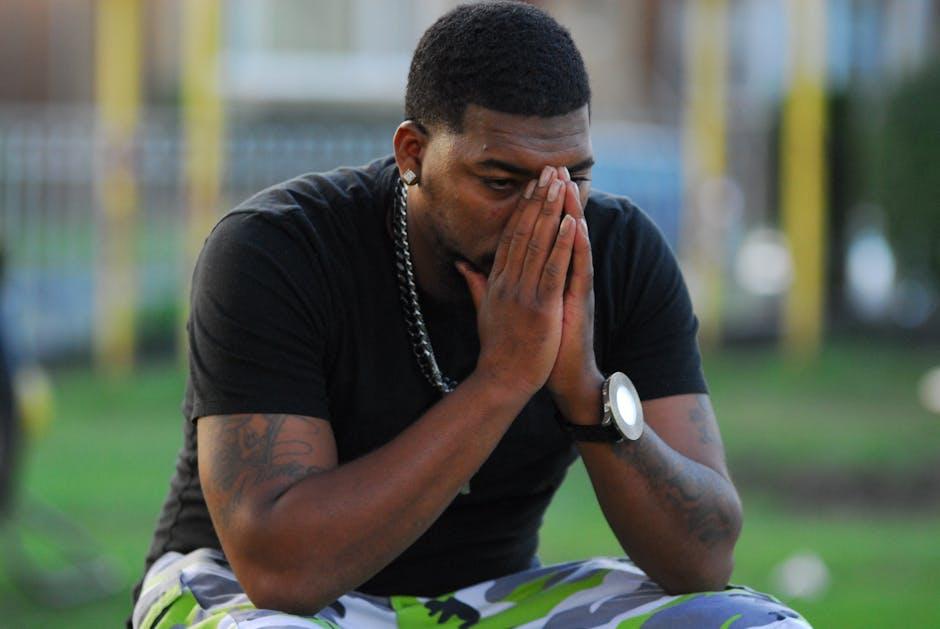
Cognitive Strategies for Enhancing Focus and Decision Making
In the high-stakes world of MMA, fighters rely heavily on cognitive techniques that enhance their mental clarity and sharpen decision-making under pressure. By incorporating mindfulness practices and mental rehearsal, athletes can better regulate their stress responses, allowing for faster reaction times and more precise tactical choices. This mental discipline not only helps in managing adrenaline rushes but also supports adaptive thinking, enabling fighters to anticipate opponents’ moves and adjust strategies mid-fight with remarkable agility.
Certain cognitive strategies form the backbone of a successful fighter’s mental toolkit. These include:
- Chunking information: Breaking down complex fight scenarios into manageable segments for quicker processing.
- Focused attention drills: Training the brain to eliminate distractions even in chaotic environments.
- Scenario simulation: Mentally rehearsing various fight outcomes to boost preparedness and confidence.
| Strategy | Benefit | Application |
|---|---|---|
| Mindfulness | Reduces stress | Pre-fight meditation sessions |
| Mental Rehearsal | Improves prediction | Visualizing opponent moves |
| Chunking | Speeds processing | Segmenting fight techniques |

Emotional Regulation Techniques to Maintain Peak Performance
In the heat of an MMA bout, managing emotions such as anxiety, frustration, and adrenaline surges becomes a cornerstone for sustaining optimal performance. Fighters often turn to breath control exercises which not only stabilize heart rate but also sharpen mental focus amid chaos. Techniques like box breathing or diaphragmatic breathing act as anchors, gently pulling the mind back to the present moment and warding off disruptive thought patterns that can lead to poor decision-making or exhaustion.
Another vital strategy lies in cognitive reframing—viewing challenges not as threats but as opportunities for growth. This mindset shift fosters resilience and adaptability, essential traits for the unpredictable nature of MMA. Combining this with mindfulness practices, such as moment-to-moment awareness during training and fights, allows fighters to regulate emotional responses more effectively. The table below summarizes some of the key methods and their primary benefits:
| Technique | Primary Benefit | Application |
|---|---|---|
| Box Breathing | Calms nervous system | Pre-fight warm-up, in-between rounds |
| Cognitive Reframing | Promotes mental resilience | Post-fight reflection, training mindset |
| Mindfulness Meditation | Enhances present moment focus | Daily practice, recovery periods |
| Progressive Muscle Relaxation | Reduces physical tension | Pre-sleep or rest intervals |
- Consistency in applying these techniques is crucial for long-term emotional mastery.
- Integration with physical training maximizes overall fight preparedness.
- Self-awareness helps fighters recognize emotional triggers before they escalate.

The Impact of Visualization and Mental Rehearsal on Fight Outcomes
Utilizing mental rehearsal and visualization techniques allows fighters to create a vivid mental movie of their matches, which can significantly boost confidence and reaction speed when the actual fight occurs. Fighters often imagine various scenarios—from complex grappling exchanges to swift striking combinations—allowing their minds to practice solutions without physical strain. This mental training nurtures an adaptive mindset, improves split-second decision-making, and primes the nervous system to respond with precision under pressure.
The benefits of these psychological tools extend beyond mere preparedness; they actively influence physiological responses, such as heart rate and muscle tension, fostering a more controlled and composed state during fights. Some key advantages include:
- Enhanced fight strategy and awareness
- Reduction of fight-induced anxiety and stress
- Improved muscle memory through cognitive rehearsal
- Accelerated recovery from setbacks during bouts
| Mental Technique | Effect on Performance | Typical Use |
|---|---|---|
| Visualization | Heightens focus and technical precision | Pre-fight preparation |
| Mental Rehearsal | Improves split-second reaction times | During training, simulating fight scenarios |
| Controlled Breathing | Manages physiological stress | Between rounds or pre-fight |
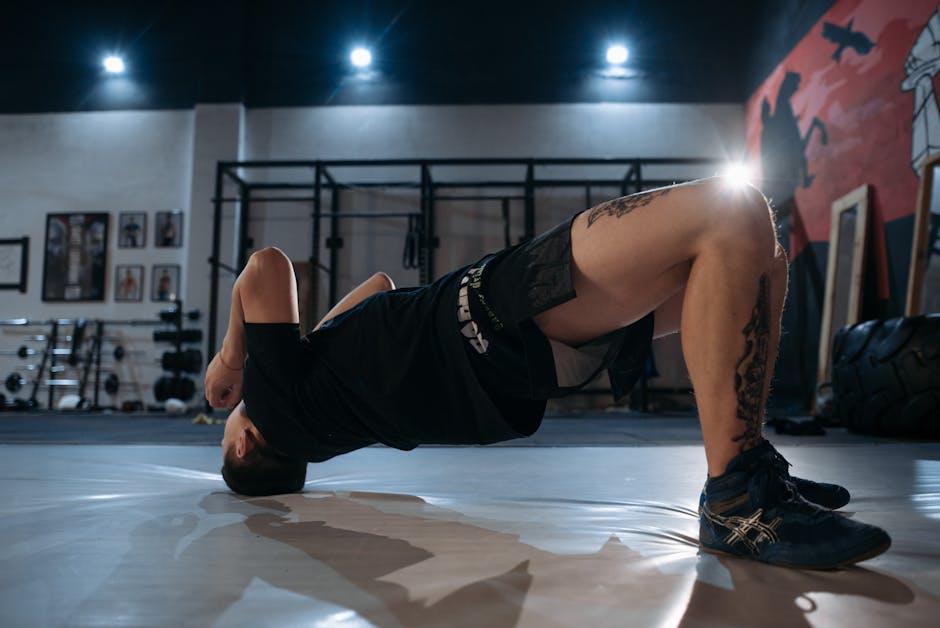
Building Resilience Through Mindset Training and Recovery Practices
Success in MMA extends beyond physical prowess; it is rooted deeply in a fighter’s mental architecture. Cultivating a resilient mindset involves recognizing that setbacks are not failures but opportunities to learn and grow. This psychological framework allows fighters to maintain focus under pressure, adapt to unexpected challenges, and recover mentally from losses or injuries. Techniques such as visualization, positive self-talk, and goal-setting become powerful tools that fortify an athlete’s mental stamina, providing them with the inner calm needed to perform at their peak during high-stress bouts.
Recovery practices are equally vital in reinforcing resilience. Integrating methods such as mindfulness meditation, controlled breathing exercises, and structured rest periods supports not only physical healing but also mental rejuvenation. These practices help regulate cortisol levels, reduce anxiety, and improve sleep quality, which collectively nurture a fighter’s ability to bounce back stronger. Consider the following table outlining key mindset and recovery strategies embraced by top MMA athletes, each contributing uniquely to an unbreakable competitive spirit:
| Mindset Strategy | Recovery Practice | Psychological Benefit |
|---|---|---|
| Visualization | Mindfulness Meditation | Enhanced focus & reduced stress |
| Positive Self-Talk | Controlled Breathing | Boosts confidence & calms nerves |
| Goal-Setting | Structured Rest | Maintains motivation & mental clarity |
Q&A
Q&A:
Q1: What makes MMA fighting psychologically unique compared to other sports?
A1: MMA (Mixed Martial Arts) blends various combat disciplines, creating a dynamic and unpredictable environment. Psychologically, this means fighters must cultivate not only physical readiness but mental flexibility, resilience, and acute situational awareness. The sport’s high stakes and intense one-on-one nature amplify pressure, requiring robust mental fortitude to perform under threat and uncertainty.
Q2: How do MMA fighters mentally prepare for a fight?
A2: Mental preparation often involves visualization techniques, mindfulness, and strategic planning. Fighters imagine different fight scenarios to build confidence and reduce anxiety, while also honing focus to stay present. Some use breathing exercises to manage adrenaline and stress, ensuring their minds remain clear amidst the chaos of combat.
Q3: What role does fear play in MMA fighting?
A3: Fear is a double-edged sword in MMA. On one side, it signals danger, alerting the fighter to threats; on the other, if unmanaged, it can cause hesitation and mistakes. Elite fighters learn to embrace fear, transforming it into heightened awareness and energy, using it as a tool rather than a handicap.
Q4: How important is psychological toughness in MMA?
A4: Psychological toughness is paramount. MMA fighters face physical pain, possible loss, and intense scrutiny. The ability to persist through setbacks, maintain composure under pressure, and bounce back quickly from defeats often distinguishes champions from contenders.
Q5: Can MMA training improve a person’s mental health outside the sport?
A5: Absolutely. Many practitioners report increased self-confidence, stress relief, and improved emotional regulation through MMA training. The sport’s discipline and routine foster mental resilience, while the physical activity releases endorphins beneficial for mood and cognitive function.
Q6: How do fighters manage the psychological impact of losing?
A6: Coping with loss involves reflection, acceptance, and learning. Fighters often work with sports psychologists to process defeat without damaging self-esteem, viewing losses as opportunities for growth rather than failures. A healthy mindset focuses on long-term development rather than immediate outcomes.
Q7: Is there a psychological difference between offensive and defensive fighters?
A7: Generally, offensive fighters may exhibit higher risk tolerance and aggression, channeling confidence into proactive strategies. Defensive fighters often display patience, discipline, and calculated caution, prioritizing opportunity over impulse. Both styles require distinct mental skills suited to their tactical approach.
Q8: How does crowd and audience pressure affect MMA fighters psychologically?
A8: Audience presence can be both motivating and stressful. Some fighters thrive off crowd energy, using it to boost adrenaline and focus. Others may experience increased anxiety or distraction. Managing this external pressure is a critical part of psychological preparation.
Q9: What psychological traits are common among successful MMA fighters?
A9: Successful fighters commonly share traits like determination, adaptability, emotional control, and a strong internal locus of control—the belief that their efforts largely dictate outcomes. They also tend to maintain a growth mindset, embracing challenges and continuous learning.
Q10: Can understanding the psychology of MMA help fans appreciate the sport more?
A10: Definitely. Recognizing the mental battles alongside the physical enhances appreciation for the complexity and human drama of MMA. It reveals that beyond brute force, it’s a chess match of strategy, emotion, and willpower—a mental war as much as a physical one.
To Wrap It Up
As the final bell rings and the fighters exit the cage, what remains is more than just the echo of punches and adrenaline. The psychological battleground of MMA reveals a complex dance of fear, strategy, resilience, and identity—a testament to the human mind’s extraordinary capacity to endure and adapt under pressure. Understanding these unseen forces not only deepens our appreciation for the sport but also shines a light on the intricate ways in which psychology shapes every fighter’s journey, inside and outside the octagon. In the end, MMA is as much a mental contest as it is a physical one, reminding us that the greatest battles are often fought within.


